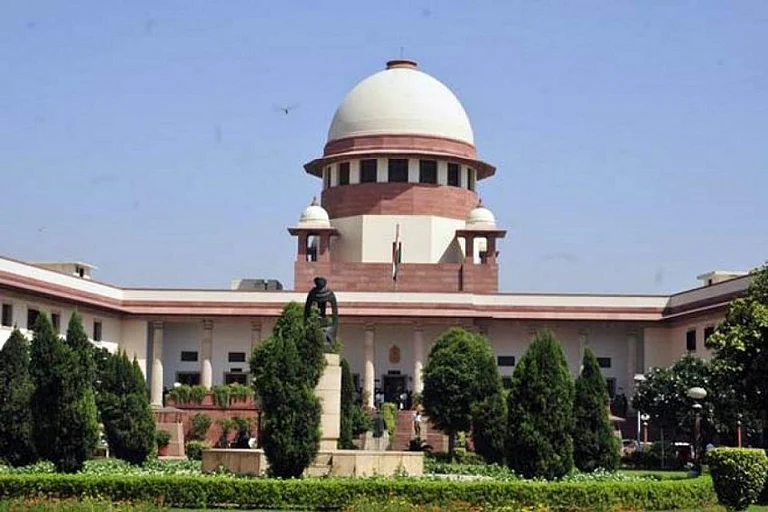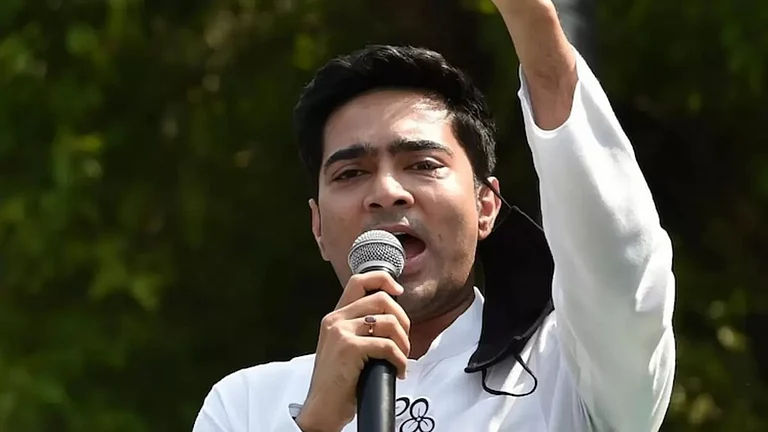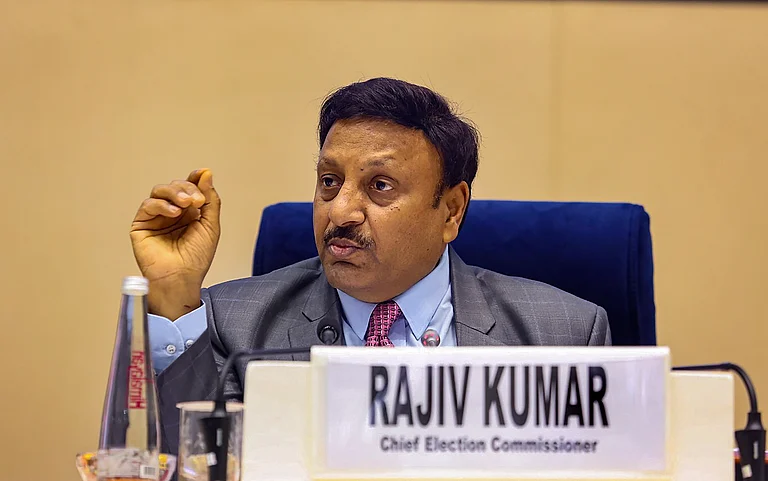Around a month after the Supreme Court held the electoral bonds scheme unconstitutional, the Election Commission of India (ECI) on Thursday published the details of donors and recipients under the scheme. Subsequently, the Supreme Court has ordered the State Bank of India (SBI) to disclose the electoral bond numbers -- the unique alphanumeric code -- which is a crucial link between the donors and the political parties.
The electoral bonds scheme, introduced by the Bharatiya Janata Party (BJP)-led Union government in 2018, ensured anonymity of political donations. This meant that the identity of the donor was not known to the public or the ECI. Only the State Bank of India (SBI), which was the only authorised entity to issue the bonds under the scheme, was aware of the donor's identity through the know your customer (KYC) process.
In its unanimous judgement, the five-judge Constitution Bench headed by Chief Justice of India (CJI) DY Chandrachud ruled that the SBI will submit all the details of bonds purchased since 2019 to the present-day by March 6 to the ECI, which will in turn publish the information on its official website by March 13.
Then, earlier on Monday (March 11), the SBI sought the extension of the deadline till June 30, which the SC rejected. The SBI then submitted the requisite data to the ECI on Tuesday (March 12), which in turn shared it on its website on Thursday (March 14) — a day ahead of the Supreme Court deadline.
While the Opposition parties hailed the Supreme Court's verdict and its subsequent crackdown on the SBI's attempt to seek an extension of the deadline, the transparency issue at the core of the electoral bonds remained unresolved. The information released by the ECI in two separate documents discloses who donated how much and who received how much money, but there is no correlation between the two lists yet. This makes it difficult to derive from the lists who donated how much money to which political party.
At the time of the SC's judgement last month, it was assumed widely that the SBI will be required to disclose who donated to which political party, but the SC clarified in the hearing on Monday that it was not the case. The SBI sought the extension of the deadline for the submission of the data over the same assumption by arguing that the datasets were separate and more time was needed for them to be collated. CJI Chandrachud then clarified that the two datasets did not have to be correlated and the two datasets were to be provided separately.
Writing in India Today, Nalini Sharma noted that Chandrachud clarified that the SBI did not have to do a "matching exercise".
"This means that the SBI will just need to furnish details of who purchased electoral bonds, their worth, and the amount that political parties received through the now-scrapped scheme. Thus, the state-run bank doesn't need to provide details of who donated how much to which political party," said the report.
This leaves the main contention unresolved as it was alleged by the Opposition that these opaque donations under the scheme could have influenced public policy. That, noted Sharma, remains unaddressed.
"Only after determining who donated to which party could it have been ascertained whether any donation had a direct or indirect impact on any government policy in favour of the donor," noted Sharma, adding that while there may be hints in the datasets, nothing can be conclusively determined.
Sharma further noted, "Though the date of purchase of the electoral bonds and the date of encashment may give a hint to who may have donated to which political party, it is not possible to determine the same with certainty since the window of issuance of the bonds as well as their encashment are very small."
In the absence of the correlation of donations with the recipients, have the petitioners scored a pyrrhic victory? Commentators have said that it is indeed possible to correlate the donations to recipients, but, since that is not within the scope of the Apex Court's judgement, how can that take place? In its petition moved last week in the Supreme Court, the Association for Democratic Reforms (ADR) argued that the donations can be traced as the SBI has a record of a 'secret number' on each bond issued and tracing these numbers can lead to the recipients.
Writing for The Leaflet, Arif Ayaz Parrey and Gursimran Kaur Bakshi noted, "In its petition, the ADR asserted that electoral bonds are completely traceable as the SBI maintains a secret number-based record of donors who buy bonds and the political parties to which they donate. Quoting experts on the software used to store information about the bonds, the ADR petition contended that since each bond has a unique number, a simple query on the database can generate a report in a particular format that does not require manual verification."
In the wake of the Supreme Court-mandated disclosure of political funding data, we take a look at the electoral bonds scheme and how it affected the Indian political landscape.




























